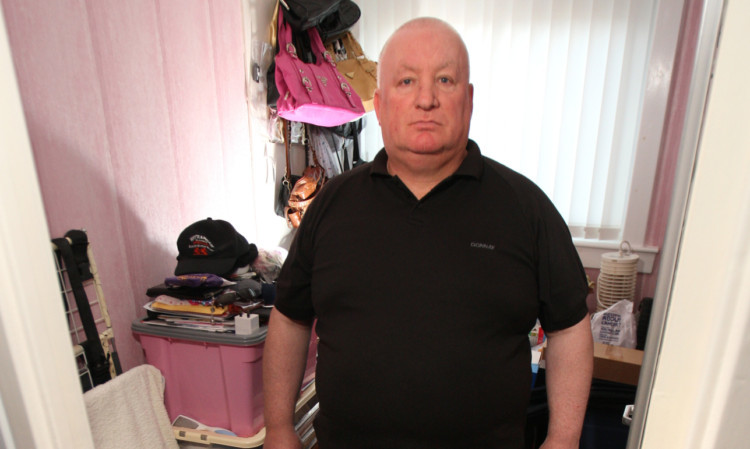Landmark rulings exempting several Fife tenants from the controversial bedroom tax could have huge repercussions for the UK housing industry, experts have warned.
The decisions by a QC based on room size and usage will have local authorities and housing associations “quaking in their boots”.
As Glenrothes man David Nelson celebrated the judgment that his spare room is too small to be considered a bedroom, Joe Halewood from housing consultancy HSM claimed social landlords were now “panicking like mad”.
Mr Halewood, who runs the blog SPeye, said a number of English councils had been in touch with him to say they were considering pre-empting lengthy court battles.
“Many social landlords have been in contact following the Fife decisions to say they are looking to see if they can unilaterally act to take a room under 70 square feet out of the equation,” he said.
“Anyone with rent arrears as a result of the bedroom tax is having court cases adjourned if they have appealed and this can take four to seven months.
“In the meantime, rent arrears are building up so it would save a lot of time and money for landlords to just remove the room themselves.”
Mr Halewood, who has more than 20 years’ experience in the housing industry, was speaking following a seminal decision by Simon Collins QC that a room of less than 50 square feet cannot be considered a bedroom.
He also ruled that a room measuring between 50 and 70 square feet can only be used by a child under the age of 10.
Mr Nelson had appealed against Fife Council’s decision to cut his housing benefit by 14% because he had a spare room and was one of seven Fife tenants to take test cases to a tribunal.
Another three, including Kirkcaldy woman Louise McLeary and Annie Harrower-Gray from Anstruther, were also successful on the grounds their spare rooms are being used for other purposes.
Louise, who is blind, successfully argued that she needed a spare bedroom in her adapted home to house braille and other equipment.
Mr Halewood said the ruling on room usage was perhaps even more significant than the one on size.
“If all bedrooms under 70 square feet were taken out of the equation that would take 70,000 people out of bedroom tax,” he said,
“However, of the 660,000 households affected by bedroom tax, 420,000 of them have a disabled resident and very many of them use their bedrooms for storing wheelchairs, defibrillators and the like.
“The significance of the bedroom tax tribunal case in Fife cannot be underestimated (sic) and that is not hyperbole.”
Meanwhile, a senior MSP has claimed the rulings could devalue social landlords’ housing stock.
Alex Johnstone, the Scottish Conservatives’ welfare reform spokesman, said: “There is a potential twist to this in that David Nelson would have paid rent for the room which is no longer classed as a bedroom.
“The issue here is whether people who pay rent on similar houses should now have their rent reduced as a result.
“It’s one of those issues that will have social landlords quaking in their boots.”
He added: “I suspect one of the reasons councils and social landlords were not keen to do this is it would devalue their stock.”
For more coverage of the ‘bedroom tax’, see Thursday’s or try our digital edition.
